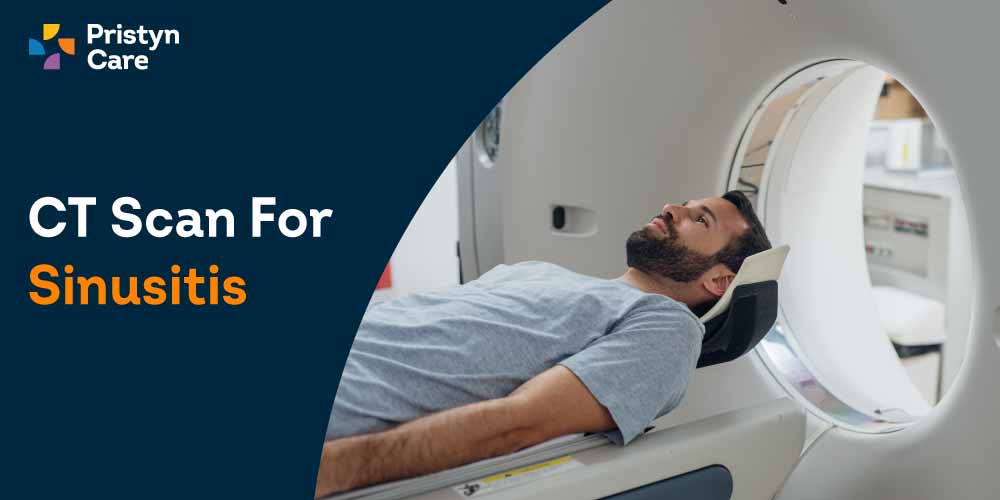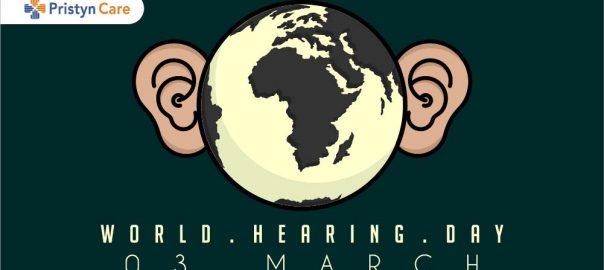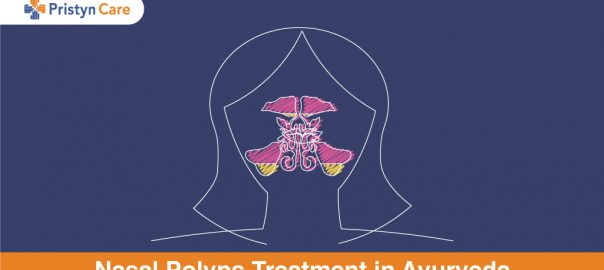![]() Views: 679
Views: 679
CT Scan for Sinusitis
However, with a CT scan, your doctor will be able to identify issues with soft tissues. We'll cover the benefits and risks of a CT Scan for sinusitis, as well as how it can be used to diagnose sinus problems. We'll also discuss how to prepare for your CT scan and what to expect during and after the procedure. Read on to learn more about CT scans for sinusitis treatment.
Dedicated Support at Every Step!
Our Doctors are available 24 hours a day, 7 days a week to help you!
If you have severe sinusitis, your doctor will perform or advise several diagnostic tests to determine the cause of your problem. They may suggest that X-rays, CT scans, MRIs, and other imaging tests diagnose your problem. With an X-ray, your doctor will only be able to identify issues with your bones, such as bone fractures. However, with a CT scan, your doctor will be able to identify issues with soft tissues. We’ll cover the benefits and risks of a CT Scan for sinusitis, as well as how it can be used to diagnose sinus problems. We’ll also discuss how to prepare for your CT scan and what to expect during and after the procedure. Read on to learn more about CT scans for sinusitis treatment.
Table of Contents
What is a CT (Computed Tomography) Scan?
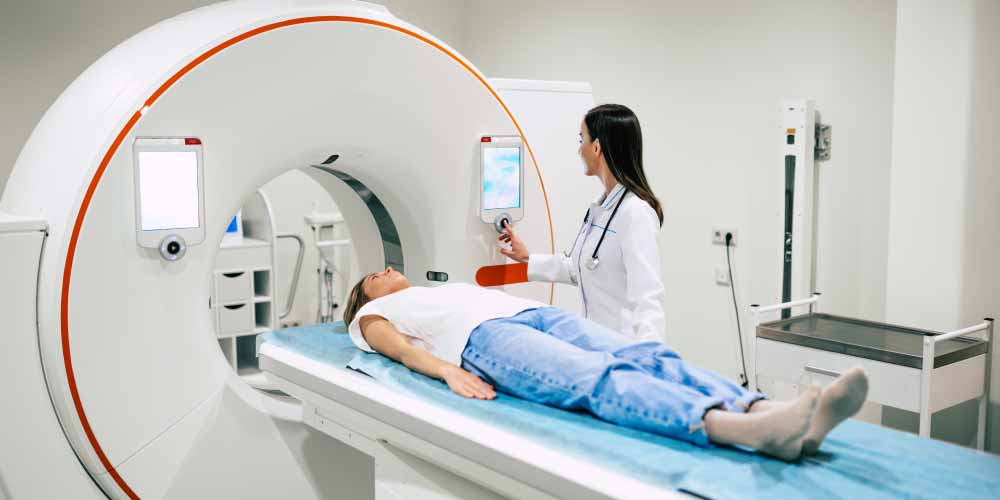
A CT scan, also known as a computed tomography scan, is a medical imaging procedure that uses X-rays and computer processing to create detailed cross-sectional images of the body. The images produced by a CT scan are more detailed than those produced by a traditional X-ray and can provide a better view of the nasal cavity and other tissues.
CT scans can be used for various purposes, but they’re beneficial when examining people who have suffered internal injuries in accidents or other traumas. A CT scan can be used to visualize nearly all parts of the body and is used to diagnose disease or injury as well as to plan medical, surgical, or radiation treatment.
No Cost EMI, Hassle-free Insurance Approval
How Can a CT Scan Help Diagnose Sinus Issues?
CT scans are ideal for examining your nose and sinuses, as they can show the severity of the condition, including blockages due to inflammation or infection. These scans can also reveal any cause, such as nasal polyps, that may be blocking your sinuses. Due to their high accuracy, CT scans are extremely helpful in diagnosing sinus-related conditions.
Additionally, CT scans can help diagnose underlying conditions, such as a deviated septum, and provide a more accurate measure of inflammation and abscesses.
CT scans are also beneficial for monitoring your sinuses after treatment. These scans can help doctors assess the effectiveness of the treatment. If you are experiencing sinus-related issues, your doctor will suggest you get a CT scan before determining the treatment.
How to Prepare for a CT Scan?
You do not require any special preparations for a CT scan. However, to make sure you are thoroughly prepared and ready for the procedure, here is a list of things you can do in advance:
- Schedule the appointment: You should book your CT scan appointment in advance with your doctor or a radiology clinic.
- Bring documents: You must bring your previous medical records to the clinic on the day of the scan.
- Eat a light meal: You need to have a light meal before the procedure or as advised by your doctor.
- Arrive early: It is best to arrive 15 to 20 minutes before your scheduled time so the scan can be done in a timely manner.
- Wear loose-fitting clothes: Make sure you wear loose-fitting clothes.
- Avoid wearing metal jewelry: As metal can interfere with the scan, make sure to remove any metal jewelry before the procedure.
Following these tips can help you have a worry-free CT scan.
What Questions Should You Ask Before Your CT Scan for Sinusitis?
Before getting a CT scan, it is crucial to understand what the procedure entails and be well-informed about the potential risks. Therefore, it is essential to ask your healthcare provider some questions before undergoing a CT scan for sinusitis or any other condition.

Here are some of the things to consider and questions to ask:
- What is the purpose of this CT scan?
- How long will it take?
- Are there any risks?
- How will I get the results, and when can I expect them?
A CT scan for sinusitis is a standard procedure, and knowing what to expect and asking the right questions can help ensure a smooth and successful process. Keep these questions in mind and discuss any concerns you may have with your healthcare provider before undergoing your CT scan.
Also Read: Cure Sinus Infection Permanently
What Happens During a CT Scan?
The CT scan procedure typically involves three steps: X-ray examination, the CT scan, and the review of results.
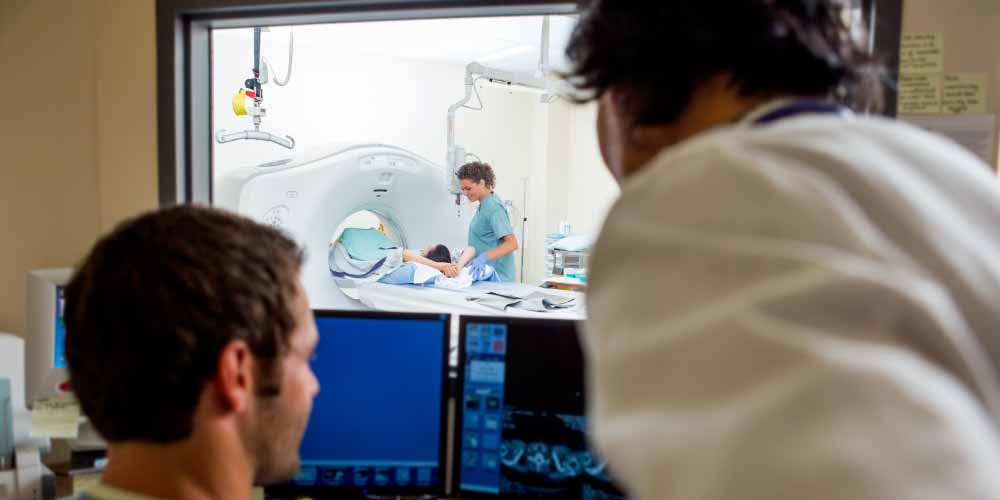
During the X-ray examination, you will be asked to lie down, and the x-ray beams will move around your face to take pictures of the paranasal cavity. This step typically takes about 10 minutes.
Next, a CT scan will be performed. During the CT scan, you’ll be asked to remain still for a few minutes while the machine takes multiple images from different angles to check sinuses located under the eyes, above the eyes, between the eyes, and behind the eyes. To check sinusitis, contrast dye is not commonly used. However, in some cases, the doctor may use a contrast dye to get a clearer image of the paranasal cavity.
After the scan is complete, the results will be reviewed by a radiologic technologist and interpreted by a radiologist. The radiologist will make a diagnosis or provide further recommendations for additional tests according to the results. The entire process usually takes about an hour.
CT scans are a safe and effective way to diagnose, detect, and identify sinus problems and plan and monitor the treatment. The test requires little to no preparation and is typically safe and doesn’t cause any discomfort to the patient. Your healthcare provider will provide detailed instructions on preparing for the test and the type of scan performed.
Are There Any Side Effects Or Risks To Getting A CT Scan?
There is no evidence that the radiation from CT scans can cause long-term health effects. Even though CT scans are generally safe, they do accompany certain risks. Side effects can include nausea, vomiting, itching, and hives. In some cases, the reaction may be more severe, and care must be sought immediately.
For some people, lying in the narrow, enclosed space of a CT scanner may cause feelings of claustrophobia or anxiety. If this concerns you, talk to your doctor in advance so they can plan accordingly.
Overall, CT scans are safe, and side effects and risks associated are rare. However, to further ensure safety, speak to your doctor before any CT scan and get regular check-ups to ensure you’re fit for the scan.
What Are the Limitations of CT of the Sinuses?
CT scan of the sinuses is a commonly used imaging technique for diagnosing sinus problems. It can give detailed information about the structure of the sinuses and identify any abnormalities. However, it is essential to note that a CT scan does have certain limitations. Understanding these limitations can be helpful for getting the most out of a CT scan of the sinuses.
- One limitation of a CT scan is that it uses ionizing radiation, which can increase cancer risk, especially in children and young adults. Therefore, weighing the potential benefits of the scan against the risks of radiation exposure is essential.
- Another limitation of CT scans of the sinuses is that they may not be able to differentiate between cancerous growths and benign sinus swelling. For example, cancer can cause changes in the sinuses that may appear similar to sinus disease on a CT scan. A biopsy may be needed to make an accurate diagnosis in such cases.
- A third limitation of CT scans of the sinuses is that they cannot identify inflammation. Usually, inflammation is detected through MRIs or through direct examination of the sinuses.
- Finally, a CT scan of the sinuses may not provide adequate detail for pathological evaluation. The images are highly detailed and can provide great insight into any abnormalities, but they may not be sufficient for a definitive diagnosis.
Although a CT scan of the sinuses has its limitations, it is still a valuable tool for diagnosing sinus diseases.
What Happens After a CT Scan?
Typically, follow-up care after a CT scan is not necessary. However, in some cases, your doctor may want to perform additional tests or checkups to ensure that the results of the scans are accurate and that you don’t have any severe medical conditions.
For example, if you were receiving a CT scan to help diagnose a tumor, your doctor may want to follow up with a biopsy or other tests to ensure the accuracy of the results. In this case, follow-up care is essential to provide you with the most accurate diagnosis and treatment plan.
If you have chronic sinusitis or other medical condition that requires ongoing monitoring, follow-up care may be necessary. In these cases, your doctor may view the CT scan results to see if there have been any changes in your condition or if a different treatment plan needs to be pursued.
Summing Up
In conclusion, a CT scan is an effective and safe imaging technique that accurately helps diagnose sinusitis. It provides detailed information about the location and cause of sinusitis and can help determine the best treatment for the condition. As with any medical procedure, discussing the risks and benefits of having a CT scan before getting it is essential.



